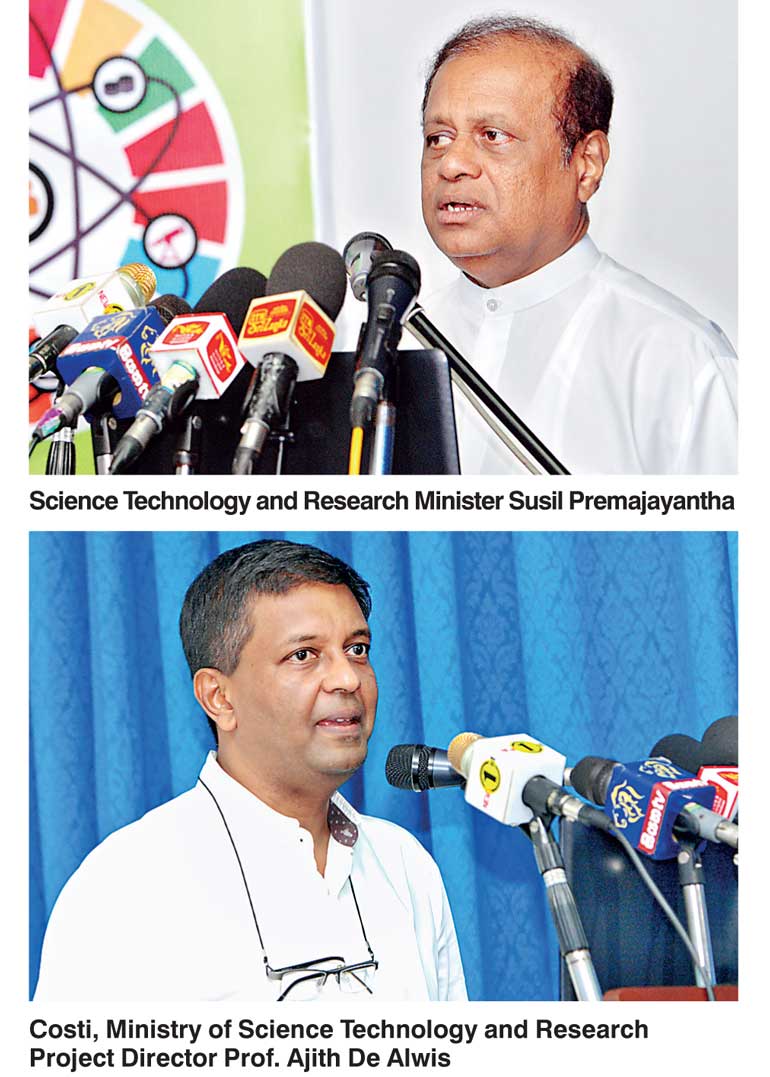Wednesday Mar 04, 2026
Wednesday Mar 04, 2026
Monday, 5 September 2016 00:01 - - {{hitsCtrl.values.hits}}
 By Himal Kotelawala
By Himal Kotelawala
Drawing inspiration from Japan’s annual Science and Technology for Society (STS) Forum, the most recent of which was attended by Prime Minister Ranil Wickremesinghe as keynote speaker last year, Sri Lanka will host its own inaugural STS Forum from 7 to 10 September, 2016.
Convened by the Ministry of Science and Technology Research, the Forum seeks to introduce advances in biotech, nanotech, ICT, atomic energy and other areas to Sri Lankan industries and infrastructure development programs.
Announcing the conference, Minister of Science and Technology Research Susil Premajayante told the media earlier this week the STS Forum Sri Lanka 2016 will see the participation of over 600 Sri Lankan scientists and over 100 scientists from other nations, 30 of whom are of Sri Lankan origin.
Representatives from science, medical and engineering faculties of local universities and state and private sector scientists and inventors will also take part, he said.
“All 12 institutes that come under the ministry came together to organise this. Leading international scientists have already registered. The private sector has also come forward,” said Minister Premajayantha.
The Forum will, among other things, look at research into non communicable diseases including the kidney failure outbreak in the country’s North Central province.
Touching on the research and development currently taking place in Sri Lanka in areas of biotech and nanotech, the Minister said the Sri Lanka Institute of Nanatechnology (SLINTEC) is currently researching the possibility of using the country’s wealth of graphite to manufacture graphene, a highly sought after allotrope of carbon that is said to be roughly 100 times stronger than steel.
Bio fertiliser, too, has been developed and is ready for large scale production.
“Sri Lanka has the world’s best cinnamon. Research is being carried out by SLINTEC to use cinnamon to fight diabetes,” he said.
According to Project Director of the Coordinating Secretariat for Science, Technology and Innovation (COSTI) Prof. Ajith De Alwis, one of the objectives of the conference is to look at ways in which Sri Lanka can use advances in science and technology in its efforts to reach the 17 sustainable development goals as spelt out by the United Nations.
“Atomic energy, biotech, nanotech and ICT can converge in order for our country to reach these goals,” he said.
In Sri Lanka, science and technology play a minimal role in policy decision making. This cannot continue, said Prof De Alwis, adding that another objective of the Forum is to look at ways in which science and technology can be considered when formulating policy.
Organised in partnership with the United Kingdom-India Education and Research Initiative (UKIERI), Japan-Sri Lanka Innovation Platform (J-SLIP) with technical session support from JAICA, GIZ and Thomson Reuters, the main objectives of the Forum are to foster excellence in science and technology, enable equitable and inclusive development through STI, promote high-tech industries in Sri Lanka, and integrate Sri Lankan industries into the global value chain.
In addition to discussing the role played by science and technology in sustainable development, the Forum is expected to address themes of citizen science, capacity building, technology and innovation, funding and investment in science and technology, establishment of a Sri Lankan Innovation Platform and nanotechnology.
The opening ceremony of the Forum will be held on 7 September at the Nelum Pokuna Mahinda Rajapaksa Theatre, with the Forum itself held between 8 and 10 September at Waters Edge, Colombo.
Pix by Shehan Gunasekara